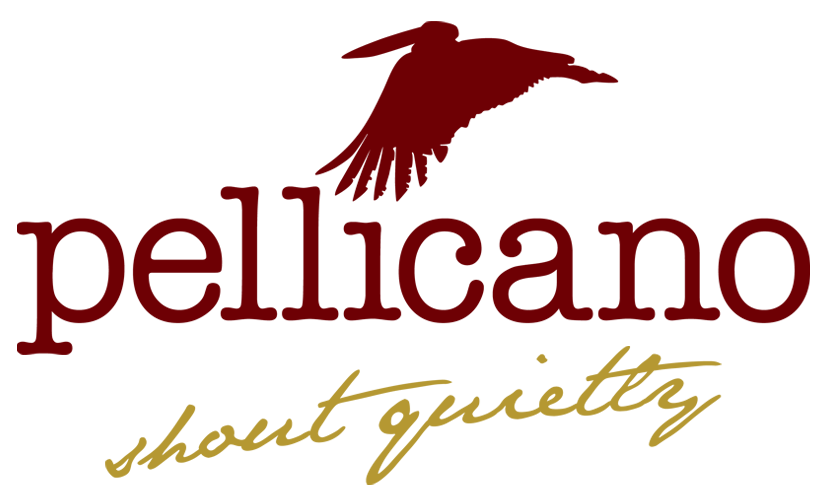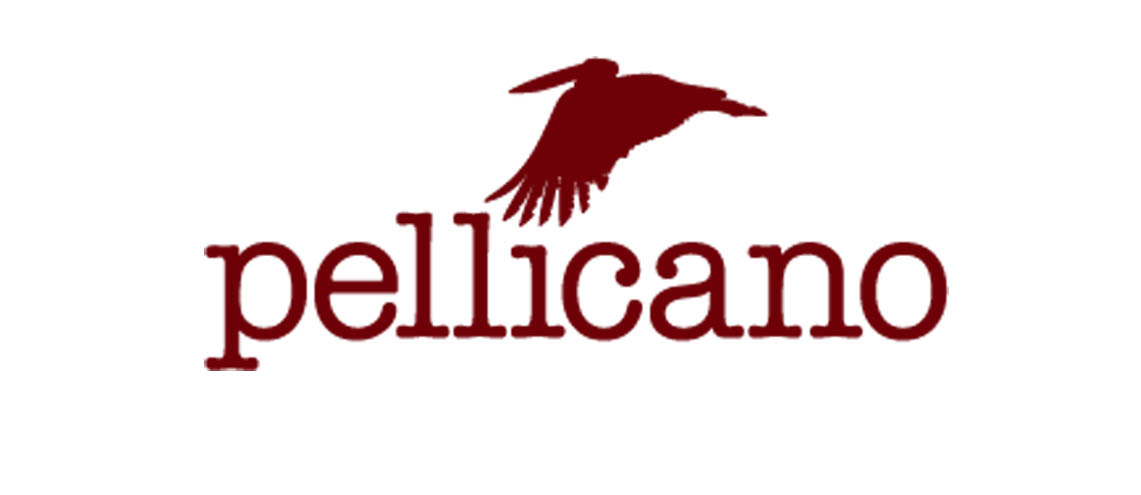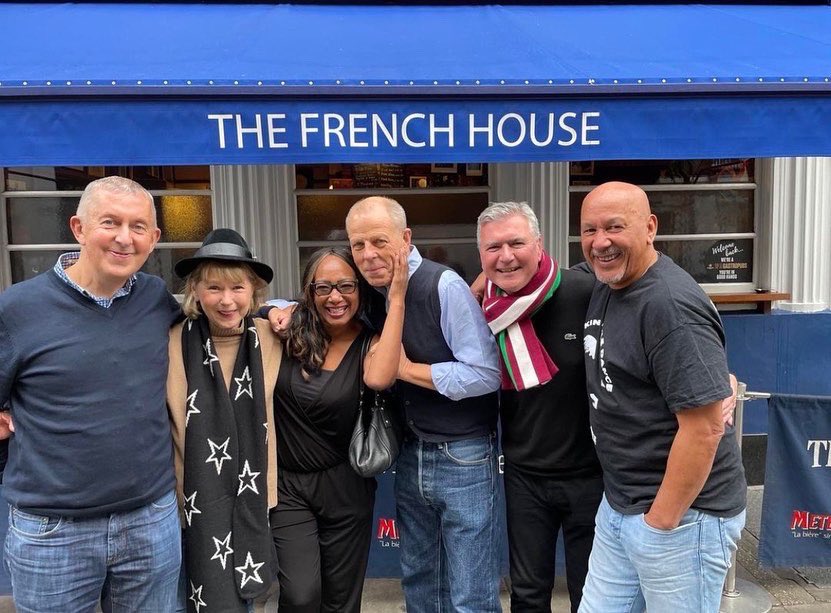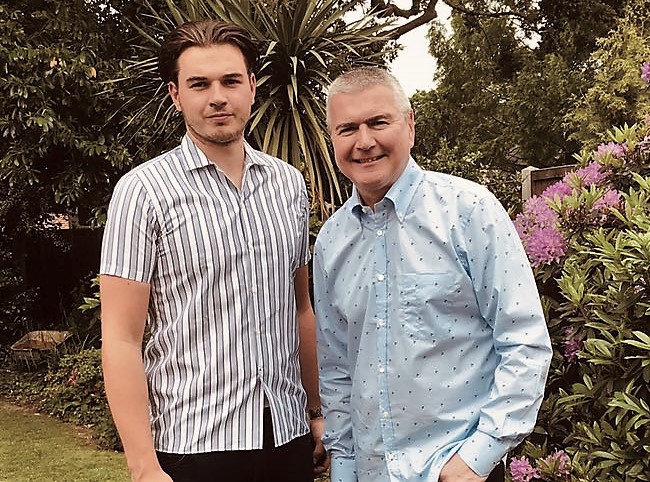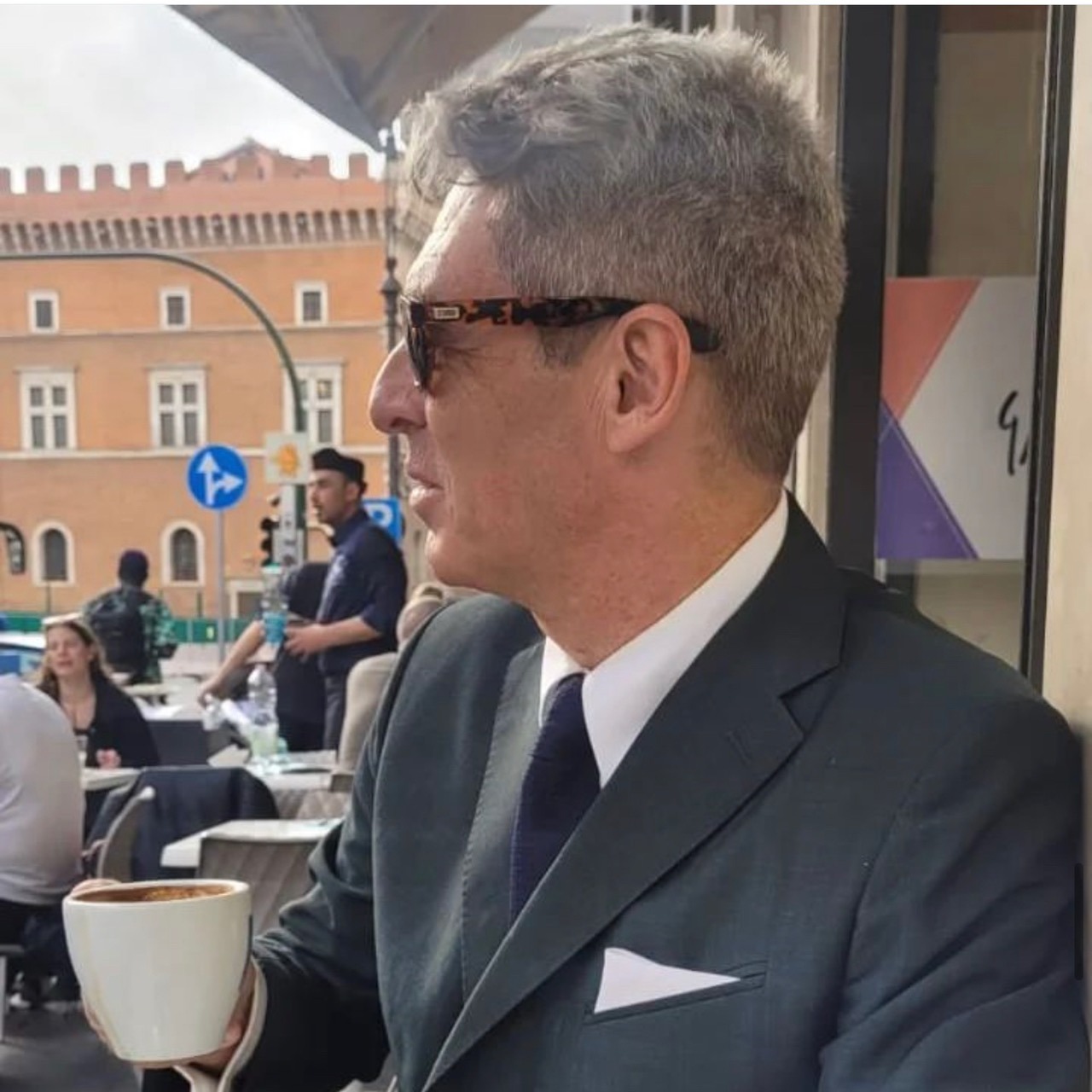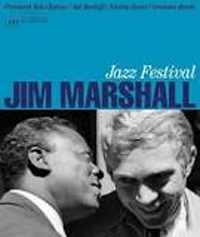Mick’s Blessings: Conference with Councillor Talbot – Tim Vickery
The keyboards were right up front on the first Style Council single, ‘Speak Like a Child,‘ and on ‘Party Chambers’ on the other side. A statement was being made. This was new, this was fresh and it was going to take us on a journey that was different from The Jam. From the start, rocking his organ and maybe even yours, it was clear that Mick Talbot was going to play a big part along the way.
How to update The Small Faces without an Ian Mac figure on the keyboards? That, then, was the starting point. But it quickly became apparent that this was not a band about to fall in the trap of conservative modernism. Mick was rooted in Jimmy Smith, but Mick was modern. Some of his instrumentals revelled in a 60s feel, but ‘Speak’ sounded 70s, ‘Long Hot Summer’ was entirely contemporary and we were only getting started. There was a cinematic feel to some of the tracks, and his Debussy influenced piano paintings were an art gallery for the ears. Mick was a tour guide on the journey – we were getting an education from this man!
These, warm and considered words are some of his thoughts on the years when the Council was in session
The Council Meeting:
Obvious one, really – but did you expect this recent outpouring of love for The Style Council? Has it taken you by surprise, or did you think that in the end the world was bound to catch up?
“I guess the forthcoming documentary (Sky Arts) (Saturday 31st October 2020) and boxed set on The Style Council has focused some renewed attention on the band. Over the years since we split I’ve had a lot of positive remarks from people of a certain age or background, so I’m not that surprised. Once the documentary has transmitted I’ll be interested to see what younger viewers might make of the band. I think during the build up and promotion of the albums and film I have heard people who were around but didn’t like us at the time, who have found they liked the music more than they expected…so who knows ?”
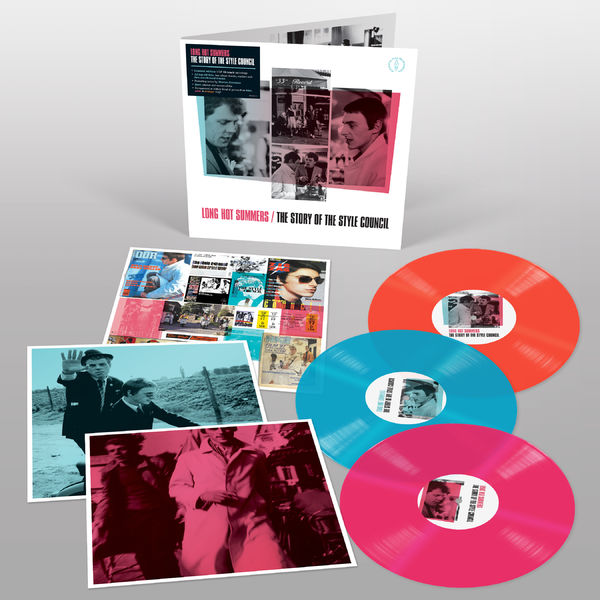
At the start I don’t think that you and Paul (Weller) knew each other that well – and then in come Steve and Dee. How long did it take for all of you to feel comfortable in each other’s company, and how did the changing group dynamics affect the music?
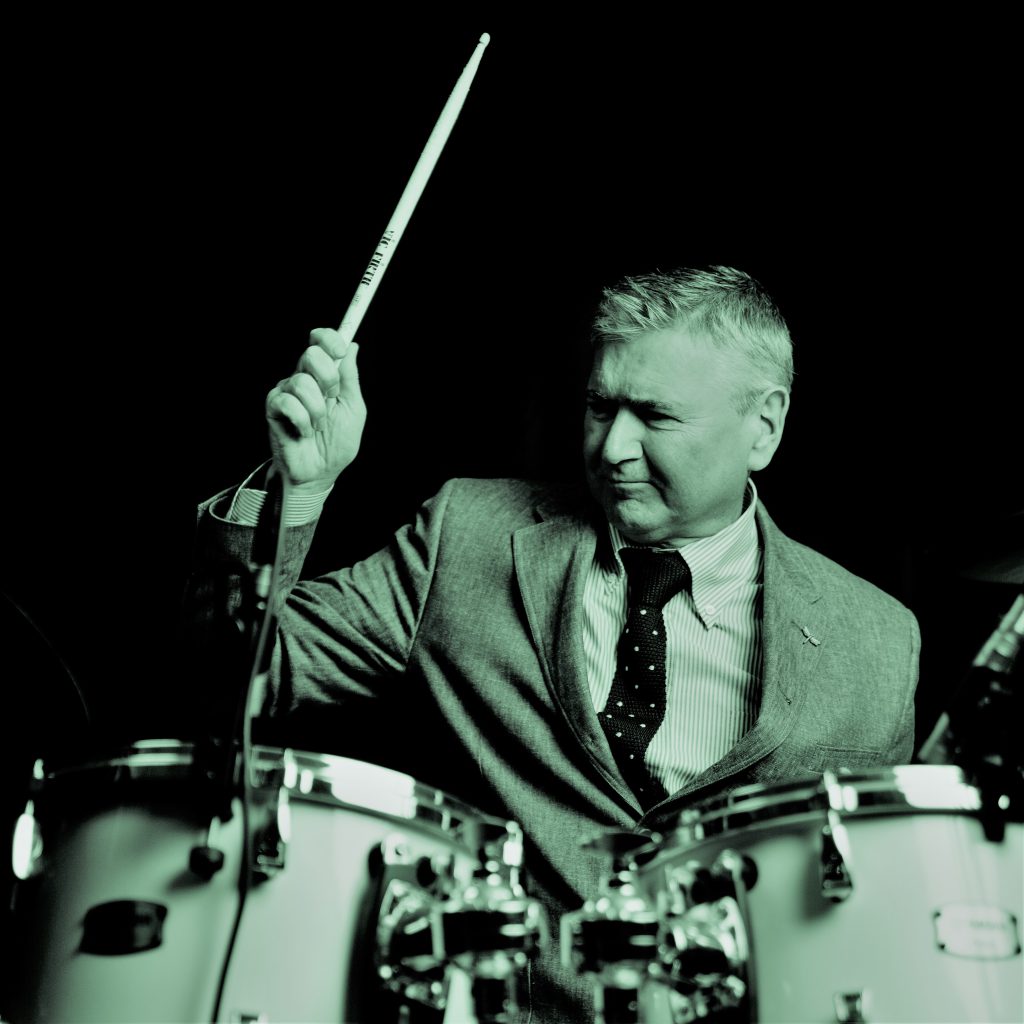
“I had some experience of working with Paul prior to The Style Council having recorded with The Jam and also played live with them on a few London dates. Once I’d had a lengthy meeting with Paul in late 1982 about his ideas for the next project I felt a deeper connection with him as we compared notes on films, books, plays, clothes and so many other things as well as music. So that all boded well and the ideas and plans he had in mind were a tantalising prospect and I relished the potential of it all. So come early 1983 we were in the studio and there was a steady flow of great material to work on. The optimism and fearless attitude was infectious and later in the same year I think Steve and Dee felt that too. We all got on as mates and shared similar musical influences. We were serious about the music but we also had a real laugh as well. Over time we became more aware of our strengths and weaknesses so that over a period of two and a half years we got to a point where the four of us were more of a solid nucleus for what we were doing and I think that resulted in Our Favourite Shop being our most consistent and fully realised album.”
The big band format of 1984, or the smaller unit of 85?
“I guess the big band of ’84 and small band of ’85 boils down to with or without horns really. I liked both, we were fortunate to work with great brass players throughout. When we didn’t use horns it would lead to more invention in the way we executed songs live, particularly those that had been recorded with horns. I recall that we did bring in horns and a string quartet for our 1985 run of dates at Wembley Arena. Overall with the live band I think as long as there was Paul, Me, Steve, Dee, Helen Turner and Camelle Hinds then we were always going to deliver. Those six names were always at the core of all the best shows we did. We were fortunate with Helen and Camelle to have two very versatile musicians who could both sing and pick up stuff really quickly.”
I saw the Council many times, always in England. I’ve often seen it said that some of the European gigs were the best. Why was that? What did we in the UK miss?
“Our best gigs in mainland Europe were probably those we did in Italy. I think there was less pressure and less concern about comparing us with The Jam. Having said that, l only think that was an issue early on for us in the U.K. So I’m not sure that the U.K. did miss that much in reality, once we’d done our first tour.”
I imagine that many of the songs had an original influence as a starting point. Are there times when you think the end result was a successful attempt to use that influence, times when it didn’t work out – and times when, although it didn’t work out as planned, it still ended up somewhere interesting?
“Some songs did have a very definite influence initially but very often during recording they could naturally evolve and take you somewhere else. We successfully used influences on some things and not so successfully on others, but at the time you have to have full faith and belief in everything you do. If something doesn’t work you may realise it a few days after and not put it out. Conversely you could put it out and only feel it didn’t work years later. Hindsight is a wonderful thing. Another side to this was our penchant for doing two different versions of certain songs if we felt they would merit two different moods or arrangements.”
I loved all the directions that the band took, all the experiments in genre. It all made sense to me – everything fitted under the original Modernist idea of the quest to acquire taste. The rap genre was the only one I thought badly done. Everything else worked. Was there a direction you think the band could have explored further?
“I think we explored pretty much all we wanted to. Throughout the whole of our time recording we always tried to serve the song in the best way we thought. So that could result in tracks where Paul was not on them or I was not on them depending on what we thought the cast list should be for the song in question. I would have liked the public to have had the chance to explore our last, and at the time, unreleased album – ‘Modernism: A New Decade’. It’s great that it finally saw the light of day many years later, but I would have liked to have seen the reaction to it at the time it was made.”
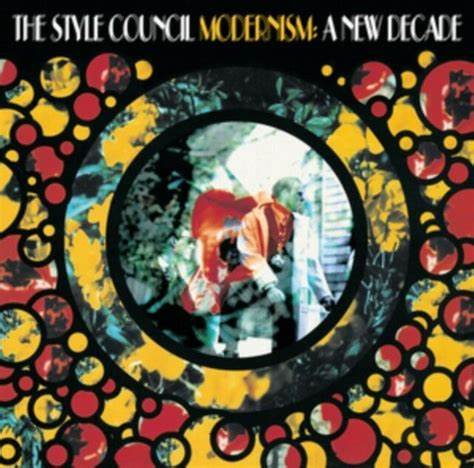
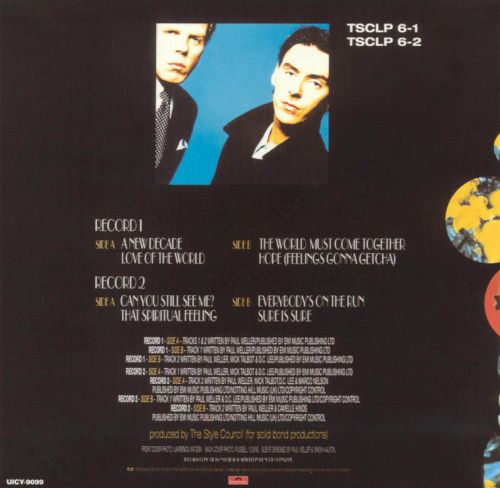
I loved the political side of the band, and love it still. ‘Our Favourite Shop’ is a faithful photo of mid 80s Britain, and the title track of ‘Confessions’ is, sadly, even more appropriate now that it was in 88. But was there a danger that, especially in the media, the political side grew too much, and the lifestyle idea – the cosmopolitan, continental, contemporary Modernist angle – was overshadowed?
“Yes I think you’re right. The political side did overshadow other aspects of the band. Our Favourite Shop lyrically was a very accurate reflection of where the country was at politically at that time. We felt it was a time of extreme change and it was a time to stand up and be counted and get behind things we believed in. But once Our Favourite Shop had come out journalists only seemed to want to talk about politics and there was very little mentioned about music, so it could make promoting stuff quite a grind.”
My take on the commercial decline is that the Council were a great singles band who stopped concentrating on great singles. I often wonder what might have happened had ‘Call Me’ been a single, or ‘Heavens Above’ or any of the mighty front three off ‘Confessions.’ How were the decisions being made, and were there internal debates on this?
“Of course as pretty much the solitary writer of nearly all of our singles ,Paul would have had the final say on single releases. I can’t recall any heated debates about those decisions. We were usually keen to put out singles that sounded nothing like the one before rather than what was or wasn’t commercial. Even early on this was the case. The second single release Money Go Round was not a very commercial decision and an unlikely follow up to Speak Like A Child, particularly when you consider A Solid Bond In Your Heart was ready at that time and possibly would have been thought more commercial. As it turned out Solid Bond was our fourth single but it got to exactly the same chart position as Money Go Round. We lost a lot of people with the release of The Cost Of Loving album ,that we never really got back. At the time we knew we could make an album that was similar to Our Favourite Shop, our most successful album, but we consciously tried to avoid that and go somewhere else.”
In all the years since, has there been anyone, bands, musicians or people working in entirely different fields, who you see as carrying on the Council’s torch?
“I’ve met a lot of people in all walks of life who’ve been touched and influenced by The Style Council in different ways. Deejays, actors, presenters, writers, musicians etc alongside people with other jobs that really matter and keep the world running. So it’s humbling to know that people as diverse as Martin Freeman (the actor), Stone Foundation (the band), Matt Fisher (a paramedic) and Sue Melham (a nurse) have all shared their appreciation of The Style Council and it’s influence on their lives to me.”
I know mine changes every day, and I imagine yours does too – but what would today’s personal list of top 5 Council tracks or moments, and why?
“‘Speak Like A Child’ -because it was our debut ,it has an exuberant spirit & energy that heralded a new adventure,
.
‘A’ Paris’ EP – the four tracks are like compass points or sign posts to the various avenues we would pursue.
‘My Ever Changing Moods ‘(Cafe Bleu version)-
A voice and a piano, simple but powerful.
The Paris Match (Cafe Bleu version)-
Tracey and Ben from Everything But The Girl playing with us capturing a totally different mood to the great original, highlighting the songs versatility.
It’s A Very Deep Sea – one of Paul’s best songs that may have been overlooked.”
Big thanks to Tim Vickery, Councillor Mick Talbot and Mark Baxter
Meeting adjourned!
For more:
Tim Vickery on Twitter: @Tim_Vickery
Pellicano Menswear: www.pellicanomenswear.com
Mark Baxter on Twitter: @TheMumper
STILL AVAILABLE:
Part 1: ” A Band of Great Promise : TSC Anthology Part 1″ with Tim Vickery” – Tim Vickery
Part 2: ‘Drum Warrior’ : Conference with Councillor Steve White – Tim Vickery
Follow Pellicano Menswear on Twitter : @pellicanostyle or subscribe to the newsletter to read the full article
